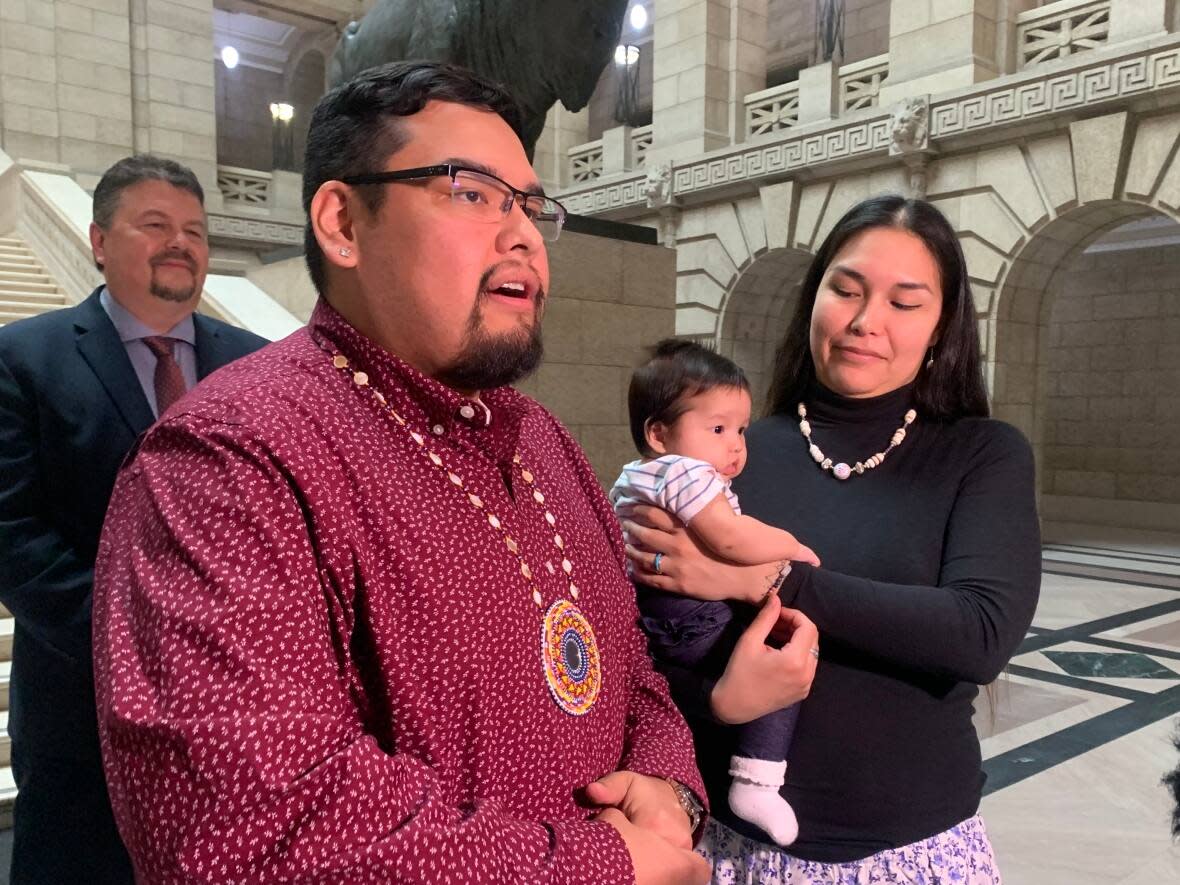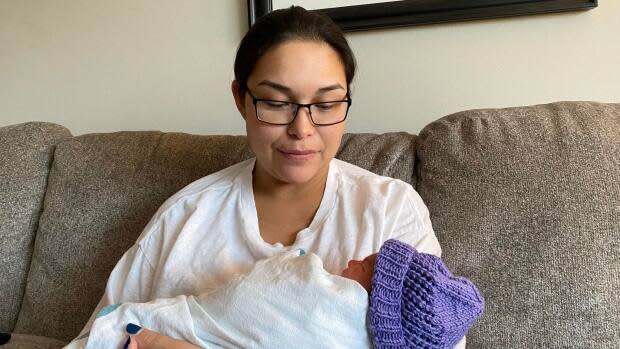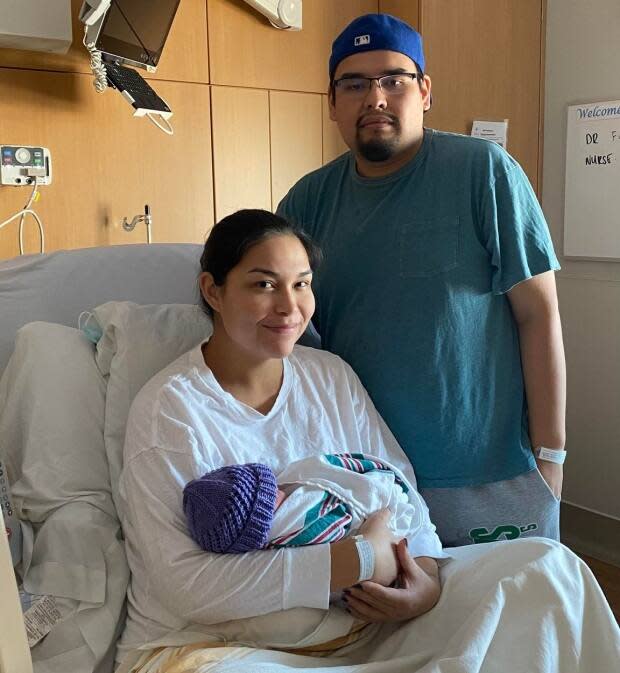Family urges Manitoba to change rules, formally accept newborn's Indigenous name

A First Nations family's push to convince Manitoba to recognize the traditional name of their newborn daughter has landed in the provincial legislature.
Parents Carson Robinson and Zaagaate Jock were on hand Wednesday to endorse an Opposition NDP bill that would formally recognize Indigenous names like the one granted to their daughter.
They named their daughter, now three months old, Atetsenhtsén:we, which translates to "forever healing medicine" in Kanien'kéha, the Mohawk language.
Except her name cannot be spelled like that on Manitoba birth certificates.
When registering a child's birth, the given name and surname must consist only of the letters A to Z, and only accents from English and French, but may include hyphens and apostrophes, according to the Vital Statistics Act.
Chosen name fits with culture
In the case of Atetsenhtsén:we's name, the colon symbol is excluded, but the accent is permitted "because it is considered French," Robinson said.
"The reason why this colon is important is because it helps pronounce the words properly of the Mohawk language," the girl's father said.
"We're looking to end that sort of way of thinking between you need to name your baby either in English or in French. We want to be able to name our baby how we see fit in our traditional ways and our traditional ways of living."

In support of the family, which was featured in a CBC story earlier this year, Ian Bushie, the NDP critic for Indigenous Reconciliation, introduced a private member's bill that would make necessary changes to the Vital Statistics Act.
"This is really inspired by their story," Bushie said, "and their inability to actually name their baby the name that they wanted to give to their baby in a culturally appropriate way.
"In the spirit of reconciliation, I believe this is the right thing to do."
Bushie needs the support of the governing Progressive Conservatives to do so — and he's hopeful he has it.
He said he's spoken about the issue with the government house leader.
A provincial spokesperson told CBC in February that "Manitoba is actively working on the inclusion of Indigenous names and syllabics, including exploring potential legislative amendments."
"This will of course require consultations to ensure changes are made appropriately to meet the needs of community."
The spokesperson wrote the province is in communication with other provinces "to learn and share experiences" and that the Vital Statistics Branch wants to work toward a solution with the parents who have come forward.

Robinson has a meeting set up with an official at the Vital Statistics Branch on Thursday to discuss his request.
He said he's thankful for the support he's already received. He applauded the nurses at the hospital, who were right away supportive of the names. He also thanked the Southern Chiefs Organization and NDP for their advocacy.
"On behalf of my family," he said, looking fondly at his partner and child. "And I'm proud to say that. I've been proud to say that for the last three months: 'My family.'
"On behalf of my family, thank you very much."


